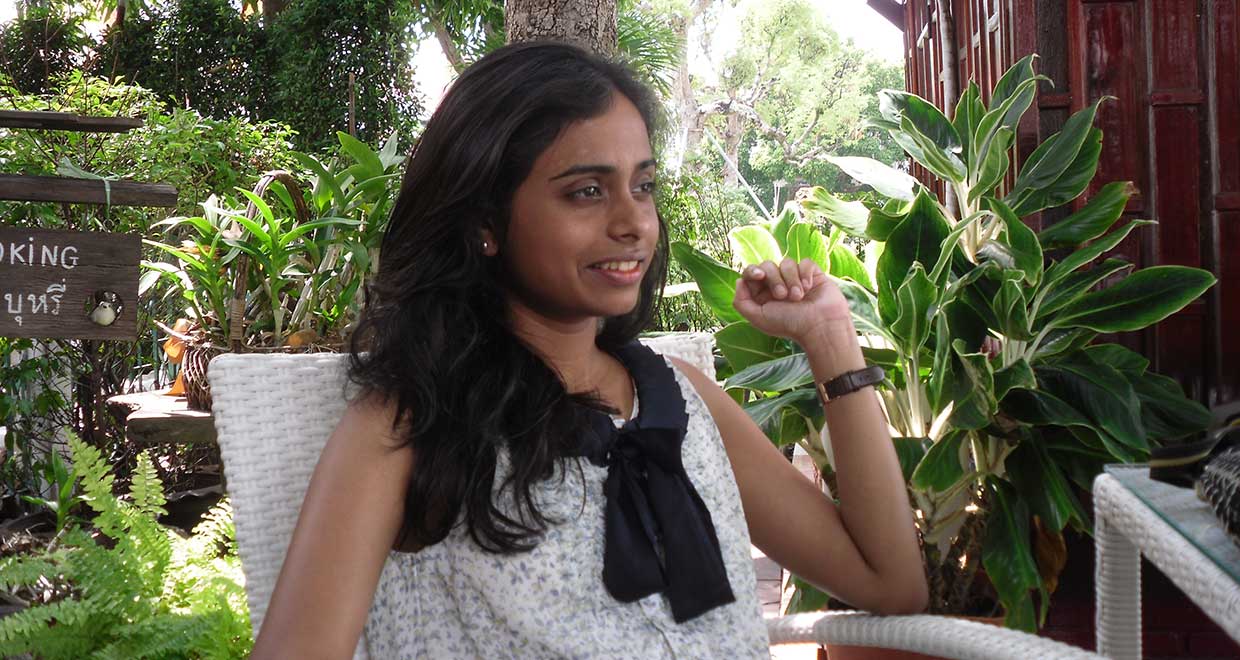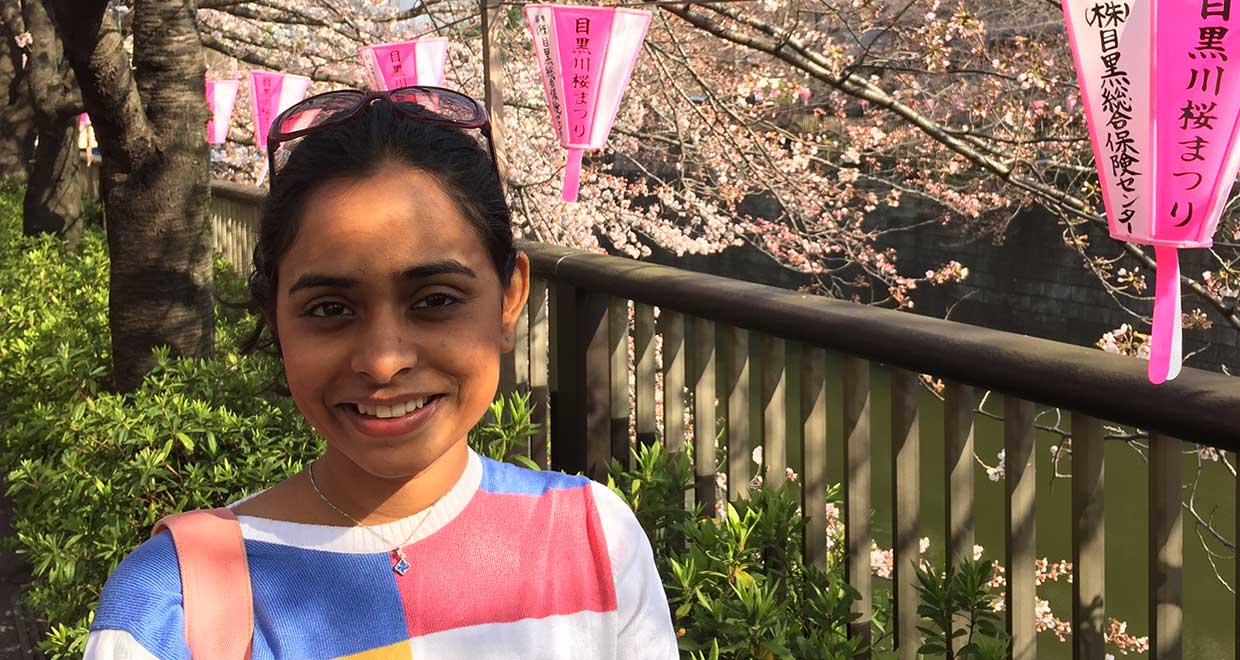Neha Mishra graduated from NLSIU, Bangalore, batch of 2008. After a brief stint at Herbert Smith, she went on to pursue her masters in Public International Law, from the London School of Economics and Political Science. Since then, she’s served as Lecturer at NLSIU, and as Associate at Economic Laws Practice, before pursuing a second master’s degree in Public Policy from National University of Singapore. She is currently a Doctoral Candidate at The University of Melbourne.
In this interview, we speak to her about:
- Her teaching experience
- Practising internationally
- Balancing extracurricular interests with academics
How did you get into the field of law?
Well, it is hard to remember what got me interested in law as a teenager. I think I was driven by instinct, rather than a rational decision. However, I did feel that the legal profession would be to my liking (of course, some of it may have been a result of watching ultra-glamorized legal dramas on TV). I think it was actually during my years at law school that I built up my motivation to learn more about the field – I was really inspired by several of my teachers and guest lecturers, as well as many of my classmates, who had such a natural flair for legal argumentation and writing.

How is your experience being a Doctoral Candidate in Melbourne Law School, University of Melbourne?
The decision to join Melbourne Law School was largely based on my interview with my current supervisors at the university. They were extremely engaged with the process of mentoring their doctoral students, and it seemed that the school would be an excellent place to pursue my research. The experience so far has been positive, and I have perhaps got more than what I had expected. It also helps that Melbourne has a very vibrant, multicultural feel to it.
Tell us about being admitted to the Bar in India and also having qualified as a solicitor in the UK.
The system for bar admission in India was different when I graduated. I didn’t need to take an examination – it was actually pretty straightforward. However, in UK, I needed to take an exam to qualify as a solicitor. The process was made very easy by the firm I was working for at that time. The exam was not particularly hard, but required some level of effort and systematic studying. I think dual qualification is really helpful if you want to pursue an international career.

How do you go about teaching?
(Neha was invited to teach undergraduate courses in National Law School of India University, and was even invited back because of the popularity of one of her courses.)
I think it is hard to suggest one particular method of teaching or instruction as such – a lot depends on the context – the subject matter, the number of students, the evaluation criteria, the key objectives of the course (for instance, theory-oriented versus practice-oriented). However, a couple of things that I valued as a teacher were: (a) I wanted students to engage in the class and in their assignments with an open mind, without fear or prescription, and to reflect on their original thoughts and arguments–to that extent, I always welcomed arguments that challenged my lectures and new ideas for evaluation; and (b) I think a lot of course materials and teaching/evaluation methods need to updated so as to keep it relevant, which means that teachers need to continuously update themselves too. If you have nothing new to offer, I feel students start feeling disengaged from the process. However, it is not always possible to experiment, given the administrative and logistics limitations at institutions.
How did you develop an interest in languages?
I have always loved learning languages – but to be honest, my approach has largely been casual, and mostly driven by personal interest. Sometimes, learning a new language was also circumstantial–for instance, I had to speak a basic level of Japanese, when I spent a few months in Tokyo. I know a lot of people who pursue this hobby much more seriously than I do and have a high level of fluency at least in two or three languages–I hope in the future I can engage more seriously with this pursuit. I feel learning a new language often helps to learn about a new culture, plus it makes travelling a lot more fun. I also wish that in the future, the education system in India (both at school and at university level) increases focus on learning both vernacular and foreign languages more seriously.

What do you think are the most important skills any aspiring lawyer should possess?
I think there are some basic skills lawyers should try to cultivate early on–attention to detail, a clear writing style, and a general awareness of issues in the society. Most of these skills are sharpened in course of studying and then practising law. I would suggest students to take studies in law school seriously, not necessarily from a grade point of view, but from a learning point of view. The other thing is to continuously upgrade one’s drafting and research skills–I think getting feedback from peers and your superiors (teachers, bosses) is a also a great way to improve. Finally, I think legal practice or writing requires a certain level of confidence that largely comes with thoroughness and sincerity. As a lawyer, one needs to remember that the learning process is always ongoing.
What makes a well-rounded résumé?
I think it is hard to prescribe what a good résumé should contain. Of course, to get admission into most top schools, grades matter. But there are several other factors at play–I think it is up to every student to capitalise on their strengths, and present them effectively in their resume and personal statement. It also depends on what one’s end goals are – pursuing higher studies may require a higher academic orientation, while pursuing a corporate career may require a greater focus on internships, practical experience. What is most important is to enjoy one’s time at law school, by learning as much as one can, not only from the books or course materials, but also from one’s teachers and classmates. Co-curricular activities not only taught me essential legal skills (for instance, while mooting or doing legal aid work) but also taught me to work in teams and build long-term friendships. I think students should aim to achieve a balance between academic pursuits and co-curricular activities, in a manner that suits their personality and long-term interests/goals.

What has it been like working in so many different countries?
I would say the biggest adjustment (or rather lesson) is to work with people from different cultures. Of course, practising across different legal systems requires some unlearning and re-learning. But as long as one’s legal basics are grounded, it is not the biggest challenge. I think the biggest challenge is being able to adjust to different working styles in different countries, and reading into different cultural codes. I think if one has an open mind and a high level of awareness of one’s environment, it becomes easier with time to work across different countries or cultures. Perhaps, in today’s world, it is a necessity for most lawyers, even if they work within a single jurisdiction.

What are your hobbies outside of work?
I like to learn languages, as I mentioned previously. I also love travelling and trying out cooking new cuisines.
If you could, what would you tell yourself in your first year of your B.A. LL.B.?
I think I would tell myself to be more proactive in classroom discussions, and be less intimidated by people who spoke a lot more in class. I would also tell myself that if I just focused on learning, the good grades would come automatically.
What message would you like to leave our readers with?
I think the more one enjoys the process of learning, the higher are the chances of becoming an accomplished lawyer. Also, it is important to relax, have fun and make friends at law school–life as a legal professional can be highly demanding and rigorous, and the opportunities available at law school never really come back.
























